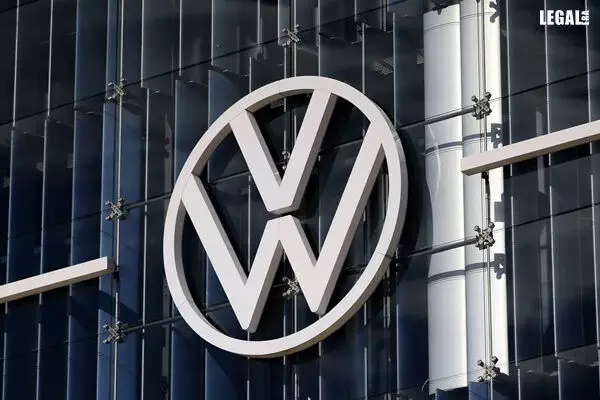- Home
- News
- Articles+
- Aerospace
- Artificial Intelligence
- Agriculture
- Alternate Dispute Resolution
- Arbitration & Mediation
- Banking and Finance
- Bankruptcy
- Book Review
- Bribery & Corruption
- Commercial Litigation
- Competition Law
- Conference Reports
- Consumer Products
- Contract
- Corporate Governance
- Corporate Law
- Covid-19
- Cryptocurrency
- Cybersecurity
- Data Protection
- Defence
- Digital Economy
- E-commerce
- Employment Law
- Energy and Natural Resources
- Entertainment and Sports Law
- Environmental Law
- Environmental, Social, and Governance
- Foreign Direct Investment
- Food and Beverage
- Gaming
- Health Care
- IBC Diaries
- In Focus
- Inclusion & Diversity
- Insurance Law
- Intellectual Property
- International Law
- IP & Tech Era
- Know the Law
- Labour Laws
- Law & Policy and Regulation
- Litigation
- Litigation Funding
- Manufacturing
- Mergers & Acquisitions
- NFTs
- Privacy
- Private Equity
- Project Finance
- Real Estate
- Risk and Compliance
- Student Corner
- Take On Board
- Tax
- Technology Media and Telecom
- Tributes
- Viewpoint
- Zoom In
- Law Firms
- In-House
- Rankings
- E-Magazine
- Legal Era TV
- Events
- Middle East
- Africa
- News
- Articles
- Aerospace
- Artificial Intelligence
- Agriculture
- Alternate Dispute Resolution
- Arbitration & Mediation
- Banking and Finance
- Bankruptcy
- Book Review
- Bribery & Corruption
- Commercial Litigation
- Competition Law
- Conference Reports
- Consumer Products
- Contract
- Corporate Governance
- Corporate Law
- Covid-19
- Cryptocurrency
- Cybersecurity
- Data Protection
- Defence
- Digital Economy
- E-commerce
- Employment Law
- Energy and Natural Resources
- Entertainment and Sports Law
- Environmental Law
- Environmental, Social, and Governance
- Foreign Direct Investment
- Food and Beverage
- Gaming
- Health Care
- IBC Diaries
- In Focus
- Inclusion & Diversity
- Insurance Law
- Intellectual Property
- International Law
- IP & Tech Era
- Know the Law
- Labour Laws
- Law & Policy and Regulation
- Litigation
- Litigation Funding
- Manufacturing
- Mergers & Acquisitions
- NFTs
- Privacy
- Private Equity
- Project Finance
- Real Estate
- Risk and Compliance
- Student Corner
- Take On Board
- Tax
- Technology Media and Telecom
- Tributes
- Viewpoint
- Zoom In
- Law Firms
- In-House
- Rankings
- E-Magazine
- Legal Era TV
- Events
- Middle East
- Africa
Volkswagen Sues India To Cancel $1.4 Billion Tax Demand

Volkswagen sues India to cancel $1.4 billion tax demand
The hearing will be held on 05 February
Volkswagen unit, Skoda Auto Volkswagen India has challenged a $1.4 billion tax demand by Indian authorities in the Bombay High Court.
It was alleged that the German company imported cars in unassembled parts to evade higher duties.
However, in a 105-page filing, Volkswagen pleaded that the tax dispute would jeopardize its $1.5 billion investment in India and was detrimental to the foreign investment climate. It argued that it contradicted New Delhi’s car part import taxation rules.
In September last, in the biggest-ever import tax demand, India penalized Volkswagen for using a strategy to break down imports of some Volkswagen, Skoda and Audi cars into many individual parts to pay a lower duty.
The authorities alleged Volkswagen imported ‘almost the entire’ car in an unassembled condition.
It attracted a 30-35 percent tax applicable on CKDs or completely knocked-down units. However, it evaded the levies by misclassifying them as ‘individual parts’ and importing them in separate shipments by paying only 5-15 percent tax.
On the other hand, the company claimed that it kept the Indian government informed of its ‘part-by-part import’ model and received clarifications in its support in 2011.
Volkswagen added that the tax notice was, “In complete contradiction of the government’s stance. It placed at peril the very foundation of faith and trust that foreign investors would desire to have in the actions and assurances" of the administration.
It added that it was not liable to pay higher taxes as it did not import car parts as a single ‘kit, but shipped them separately, combining them with local components to make a car. Explaining what a ‘kit’ meant, it referred to a simple analogy of buying a chair online from Amazon, which is then delivered in one shipment with all parts and fixtures needed to assemble the furniture.
However, the authorities alleged that Volkswagen's local unit regularly placed bulk orders for cars through internal software, which connected it to suppliers in the Czech Republic, Germany, Mexico and other countries. On placing the order, the software broke it down into ‘main components’ - 700-1500 for each vehicle, depending on the model, shipped separately.
The Indian authorities claimed it was, "a ploy to clear the goods without the payment of the applicable duty."
While stating, "there is no exclusive utilization of the parts towards the manufacture of one specific car," Volkswagen contested the alleged clandestine software use. It clarified that it was to help dealers convey car orders so that they could track "consumer demand at a macro level."
High taxes and prolonged legal disputes have often been a sore point for foreign companies in India, with Tesla complaining about high taxes on imported electric vehicles. Meanwhile, the German carmaker is a tiny player in India's 4 million units a year car market, the world's third biggest. Audi lags behind competitors in the luxury segment like Mercedes and BMW.
It was reported that with penalties, Volkswagen India may have to pay $2.8 billion if it lost the dispute. (In 2023-24, its sales were for $2.19 billion, making a $11 million profit).



